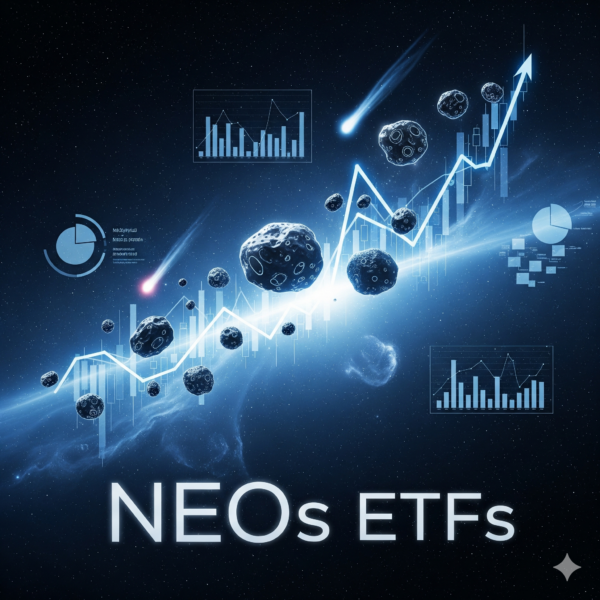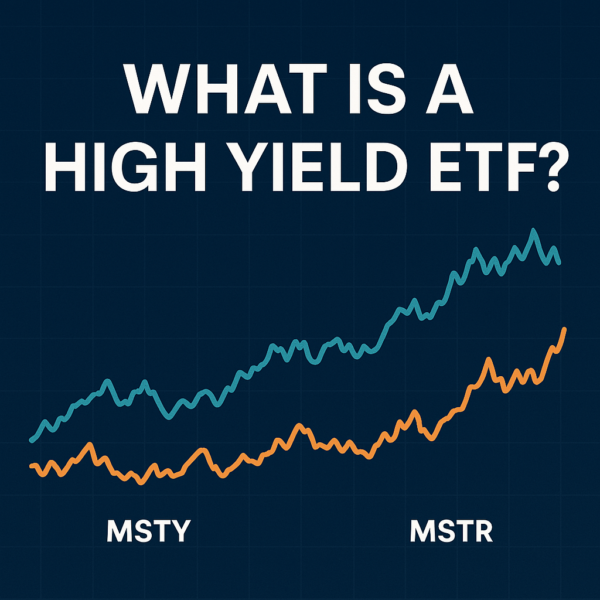Humans vs. Quant Traders: Who Wins in the World of Trading?
- Only 10% of stock trades are made by investors. The rest are made by quant traders, who use algorithms to quickly crunch data, recognize patterns and place trades.
- Today, Nicholas Vardy explains why quant systems have an edge over humans in building wealth.
Editor’s Note: Exciting news! Our brilliant ETF Strategist Nicholas Vardy is transitioning into a new role as The Oxford Club’s Quantitative Strategist. What exactly does that mean? Well, Nicholas will be taking a deeper dive into quant investing strategies and trends, and sharing that knowledge with our Liberty Through Wealth readers and his subscribers.
So, for starters, take a look at today’s article for more information about quant trading and its explosive growth in recent years.
– Christina Grieves
The statistics are clear as day.
Stock pickers are a dying breed.
J.P. Morgan estimates that a mere 10% of stock buying and selling is by investors trading on fundamentals.
The rest occur through a combination of passive investors and algorithms run by quant traders.
Solving the “Human” Problem
So what explains this unprecedented growth in quant trading?
First, computer processing power has exploded.
Computers can parse, analyze and integrate data like no human can. They recognize patterns invisible to the human eye.
Second, we humans are the weakest link in investing.
Active trading is particularly treacherous. It homes in on human weaknesses like a heat-seeking missile.
Dozens of cognitive biases steer us toward making bad investment decisions.
For some traders, placing bets in the market is like gambling: fun and addictive. It’s a real-life, nonstop video game.
For others, trading offers the opportunity to pit their wits against the market. The challenge is eternal. You can’t be right just once. You have to be right again and again and again.
Quant trading solves the challenges of human psychology in one fell swoop.
It eliminates human decision-making altogether.
The Quant System’s Edge
A quant system’s edge is its ability to crunch data, recognize patterns and place a trade based on objective criteria.
This process can lead to some remarkable results.
In the fourth quarter of 2019, quant investing pioneer Renaissance Technologies took a massive position in Tesla right before its most recent pop.
Renaissance made more than $1.5 billion on that trade.
No analyst trained in traditional fundamental investing would have dared to place that bet.
Yet Renaissance’s computers picked up a pattern no human ever could.
Quant systems offer another equally important edge: They never make mistakes.
Program a system with a set of rules, and it will follow them without question.
Unlike humans, computers are immune to Mr. Market’s mood swings… are indifferent to a clever investment pitch… and never fall out of emotional kilter due to a divorce.
Today’s Top Quant Strategy
As The Oxford Club’s Quantitative Strategist (previously ETF Strategist), I track thousands of ETFs.
You may be surprised to learn that smart beta ETFs are a simpler form of quantitative investing.
Each smart beta ETF tracks a specific quant-based investment strategy… and never deviates from it.
So what is the top quant ETF strategy in today’s market? Momentum.
The iShares Edge MSCI USA Momentum Factor ETF (CBOE: MTUM), a holding in the Oxford Wealth Accelerator Strategic Portfolio, is already up 5% in 2020.
And it is up 34.5% since we launched the Strategic Portfolio in December 2018.
That’s a terrific performance for a “set it and forget it” market-beating strategy.
Here’s the challenge.
Yes, momentum is in favor today.
But as sure as day follows night, soon, a different quant strategy – perhaps deep value – will lead the pack.
Enter Short-Term Quant Strategies
Here’s where short-term quant trading systems come into play.
Active quant traders can generate impressive short-term returns by betting big on stocks screened for specific quant-based characteristics.
Exploiting consistent market anomalies is typical of the strategies used by top quant hedge funds like Renaissance.
Over the past six months, I’ve been working with some of the leading quant software. And I’ve consulted some of the leading experts in the field – all of this with one aim: to develop some highly profitable short-term quant trading systems.
These quant systems have generated some impressive short-term investment returns.
I’ll be sharing some examples over the coming weeks.
And I expect you’ll come to the same conclusion I did: In the world of short-term trading, quant traders trump humans almost every time.
About Nicholas Vardy
An accomplished investment advisor and widely recognized expert on quantitative investing, global investing and exchange-traded funds, Nicholas has been a regular commentator on CNN International and Fox Business Network. He has also been cited in The Wall Street Journal, Financial Times, Newsweek, Fox Business News, CBS, MarketWatch, Yahoo Finance and MSN Money Central. Nicholas holds a bachelor’s and a master’s from Stanford University and a J.D. from Harvard Law School. It’s no wonder his groundbreaking content is published regularly in the free daily e-letter Liberty Through Wealth.






